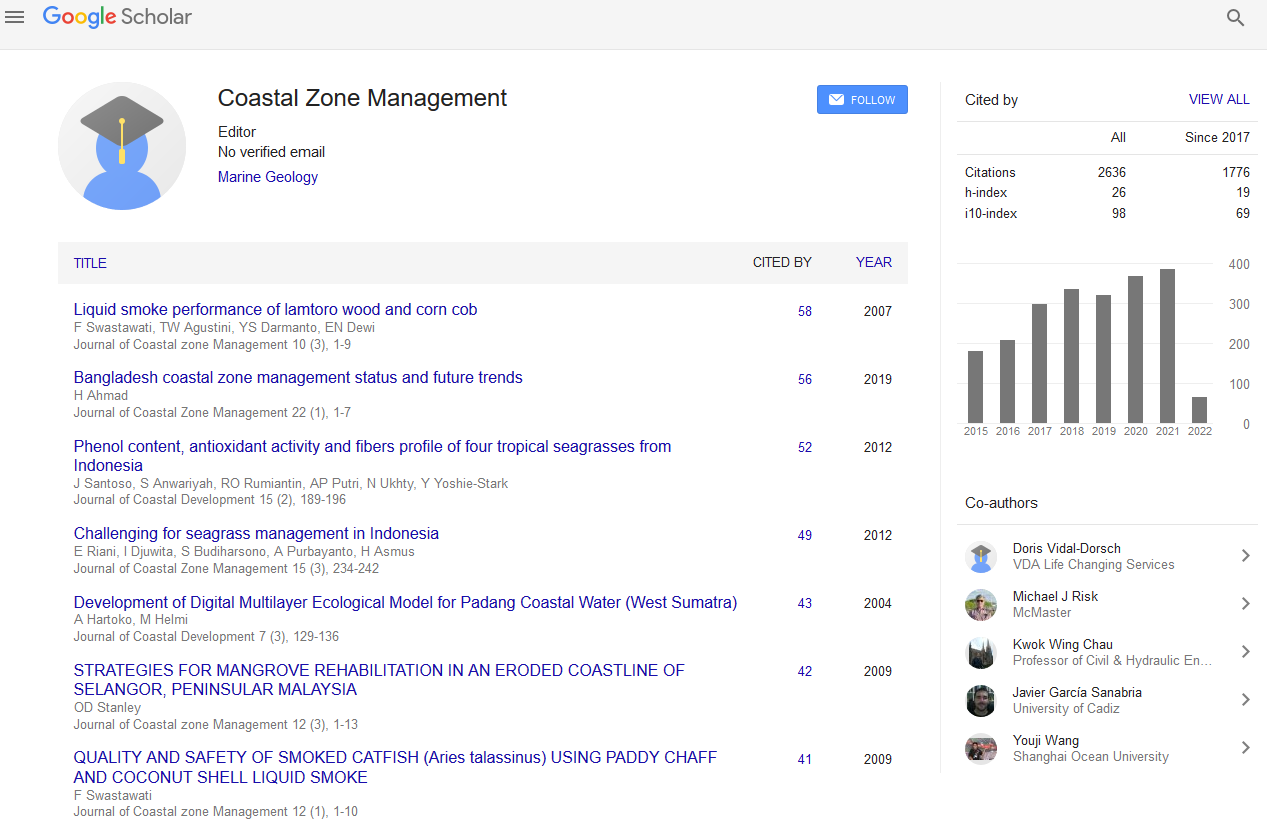Indexed In
- SafetyLit
- RefSeek
- Hamdard University
- EBSCO A-Z
- OCLC- WorldCat
- Publons
Useful Links
Share This Page
Journal Flyer

Open Access Journals
- Agri and Aquaculture
- Biochemistry
- Bioinformatics & Systems Biology
- Business & Management
- Chemistry
- Clinical Sciences
- Engineering
- Food & Nutrition
- General Science
- Genetics & Molecular Biology
- Immunology & Microbiology
- Medical Sciences
- Neuroscience & Psychology
- Nursing & Health Care
- Pharmaceutical Sciences
Abstract
Antibacterial Activity of Bacterial Symbionts of Softcoral Sinularia Sp. against Pathogenic Resistant Bacteria
Sulistiyani, S.A. Nugraheni, Miftahuddin Majid Khoeri, Agus Sabdono, and Ocky Karna Radjasa
Infections caused by resistant microbes may cause failure to respond to medical treatments, resulting in prolonged illness and greater risk of death. Treatment failures also lead to longer periods of infection, which increase the numbers of infected people moving into the community and thus expose the general population to the risk of contracting a resistant strain of infection. Soft corals have been known to produce secondary metabolites, some of which may have anticancer, antifouling, antibacterial activity. It has been suggested that natural products from marine invertebrates have striking similarities to metabolites of their association microorganisms. The aim of this study was to isolate and characterize bacterial symbionts of soft coral Sinularia sp. having antibacterial activity against pathogenic Multi Drugs Resistant bacteria (Staphylococcus aureus, Escherichia coli, and Enterobacter). Five were successfully screened for antibacterial against resistant pathogenic bacteria. Two isolates, SNTGZ10 and SNTGZ11 were found to inhibit the growth of MDR Staphylococcus aureus, SC4TGZ3 and SC4TGZ11 inhibited the growth of MDR Escherichia coli and Enterobacter sp. , while isolate SC4TGZ4 inhibit the growth of MDR Enterobacter sp. Molecular identification revealed that: SNTGZ10 and SNTGZ11 were closely related to Virgibacillus; SC4TGZ3 to Pseudovibrio; SC4TGZ4 to Alphaproteobacteria; and SC4TGZ11was closely related to Microbulbife. The bacterial symbionts of softcoral Sinularia sp. offer potential source of antibacterial compounds in particular against MDR strains.

